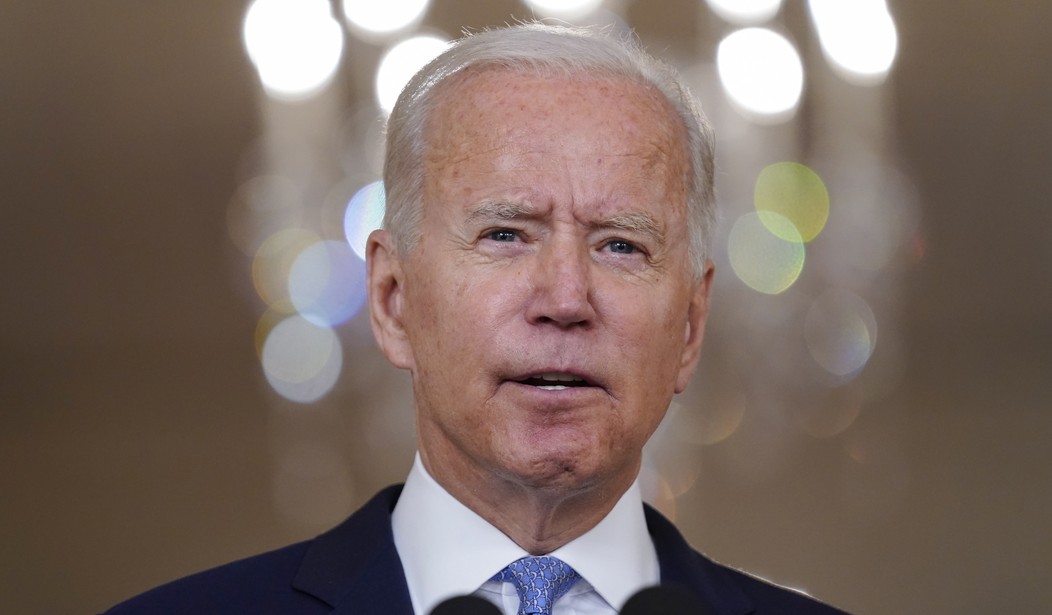As a former assistant chief of police and founder of a company that provides security services, I thought I knew much about the business of protecting people. But career politicians in Washington are giving all of us a masterclass in how to safeguard the interests of ultra-wealthy and powerful people like themselves through a multi pronged expansion of the death tax. If passed, the effort would destroy American jobs, eliminate incentives for small and family-owned businesses to grow, as well as further cement the status of society's most elite echelon.
The provisions of concern – a reduction in the federal estate tax exemption level and repeal of the so-called “stepped-up in basis” – can be found in the prevailing $3.5 trillion budget package that’s receiving much criticism from Republicans and Democrats alike. As an important Wall Street Journal column on how the White House’s new death tax proposals “would hit some modest estates especially hard” makes clear, “while most Americans can pass wealth to their heirs without incurring federal taxes, ‘the wealthiest’ can’t.” Indeed,“the [current] federal estate tax applies when the person who has died has a net worth of $11.7 million or more (or twice that for married couples), and it rises to 40 percent after the first $1 million in taxable assets.” Yet,“Mr. Biden’s American Families Plan would subject many estates worth far less than $11.7 million to a punishing new death tax.”Lowering the current $11.7 million estate and gift tax exemption threshold by a full 70 percent would, therefore, “result in more tax for many families at death.”
Perhaps the only thing worse than saddling widows and loved ones of modest decedents with a new death tax that’s currently reserved for the wealthy: doing so under the guise of the “American Families Plan.”
Recommended
Meanwhile, on a parallel basis, President Biden’s plan to eliminate the step-up in basis would impose crushing consequences on family businesses – which account for 83.3 million American jobs and 54 percent of private sector GDP – the workers they employ, and the American economy at large. For context, family-owned businesses and farms have long been shielded from crippling tax bills when a relative passes away. That’s because the step-up in basis provision of the current code rightfully ensures that those who inherit assets are not taxed on the appreciation, including simple inflation, accrued by the prior owner or previous generations of owners.
The outpouring of concern over President Biden’s plan to repeal this critically important protection for small businesses spans the ideological spectrum – from the entire Senate Republican caucus to more than a dozen House Democrats. Here’s why: a repeal of the provision would present scores of small businesses with large tax bills – as well as the difficult decision of how to pay for it; of whether to close their doors or lay off their employees.Forcing small business owners who experienced a recent death in the family to choose between paying hefty new tax bills – which supplement, rather than replace, any existing tax liability – and paying workers in any climate is reckless. Forcing small business owners to do so in this climate is ruthless.
Moreover, as the foregoing group of Democrats wrote in a recent letter to Speaker Pelosi, “since farms, machinery, and some small businesses may be illiquid or difficult to value, the administrative difficulty is increased” – and, as Senate Republicans continue, “making these changes could force business operators to sell property…just to cover these new tax obligations.”
The costly consequences of a step-up in basis repeal are just as acute for the nation’s economy as they may well be for your family. Per a recent E&Y study, the move would result in 80,000 fewer American jobs annually over the next decade, cost an additional 100,000 jobs per year thereafter, and decrease GDP by approximately $10 billion each year for a total of $100 billion over the course of 10 years. And for every $100 of revenue raised via the repeal, $32 would come from workers’ pockets in the form of lower wages.
Accordingly, as our country works to rebuild on the heels of historic crises and in the throes of a daunting surge of new cases caused by the Delta variant, President Biden should listen to the chorus of concern among lawmakers of both political parties regarding the devastating impacts of his new death tax proposals. Rather than building our economy back better, I fear the ill-named “American Families Plan” would only build a greater – and perhaps even impenetrable – barrier between descendants at the very top who already qualify for the federal estate tax and families of more modest means who would suddenly be subjected to severe new tax liabilities.
Lawmakers should reject these proposals with the decisiveness these families – along with the tens of thousands of American workers whose jobs would be terminated – deserve.

























Join the conversation as a VIP Member